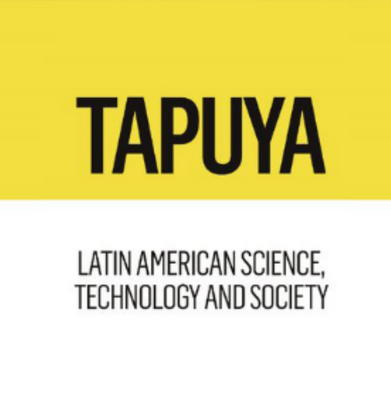“Tapuya” has contradictory meanings. Centuries ago it became the name of one of the indigenous tribes that occupied what is now Brazil; it refers to people from the Tupi tribe. Also, in the first centuries of the colonization of Brazil, the Tupi language became the local language of the colonizers. In this context, “Tapuya” was used by the Tupi to designate people who did not speak the Tupi language as the Tupi do. Today’s anti-colonial theorists have used the purported identity of this group as cannibals to articulate their own practice of “swallowing” northern practices and transforming them into something distinctively Latin American.
“Tapuya,” therefore, has relevance as a title on multiple levels. The possibility of holding two contradictory definitions, the inevitable intellectual and political betrayals of translation, and the productive tensions of simultaneously being part and not part of a specific community, are all important concerns of this journal. The title points toward the journal’s project of navigating through tumultuous and usually conflicted social and political currents, always on behalf of Latin American STS.
Journal history
In May 2016, founding Editor-in-Chief, Leandro Rodríguez Medina, and founding Senior Advisor, Sandra Harding, met at a workshop at the University of Brasilia on “Postcolonial and Latin American STS,” organized by Tiago Ribeiro Duarte and Luis Reyes-Galindo. They discussed the decision often faced by Latin American scholars, to either publish in English to attain visibility and reach, or publish in their own language and remain tethered to their local communities and discussions. The former choice often weakens social scientists’ home-based scientific community by removing talented researchers from its publication ecology. The latter impedes their work from being read, debated, or cited by a wider international community.
Could a trans-Latin American journal, published by a first-class English-language publisher, but with editorial decisions made by Spanish and Portuguese speakers in Latin America, intervene to transform this situation? Could Latin American STS scholarship enlarge the scope and depth of “international” analyses that suffer from the lack of critical perspectives provided by peripheral social scientists? Since the publication of its first volume in 2018, Tapuya has affirmatively responded to these questions.
Journal description
Tapuya is a forum for STS research that elicits conversations within Latin America, between Latin America and Euro-American cultures, and across global peripheries. By asking “What does knowledge produced anywhere in the world look like from a Latin American standpoint?” Tapuya seeks to increase the complexity of the STS scholarly landscape and push conventional STS boundaries to include issues, perspectives and methods relevant to Latin America.
Affiliations and sponsors
Tapuya is affiliated with:
Society for the Social Studies of Science (4S)
Asociación Latinoamericana de Estudios Sociales de la Ciencia y la Tecnología (ESOCITE)
Tapuya is sponsored by:
Luskin School of Public Affairs, University of California Los Angeles, U.S.A.
Latin American Institute, University of California Los Angeles, U.S.A.
Graduate School of Education and Information Studies, University of California Los Angeles, U.S.A.
Editorial principles
- Tapuya is committed to offering all authors, especially junior scholars and first-time authors, a hospitable editorial climate.
- Tapuya expects submissions from scholars who are not native English speakers, and the journal embraces this diversity also within the review process. Tapuya welcomes submissions in which the linguistic dimension of science and technology and their studies can be critically assessed.
- Tapuya is a peer-reviewed journal. All non-commissioned submissions will be double blind peer reviewed. Commissioned submissions, such as book reviews, will be reviewed by the journal’s Editor-in-Chief and/or an appointed editor. All submissions must meet international standards for high-quality American English, for well-organized arguments, and they must meet the journal’s style guidelines.
- Tapuya is an Open Access journal that prioritizes the quality of submissions over the author’s ability to pay the Article Processing Charges (APC). All high-quality manuscripts will be published regardless of the ability of authors to pay APC. All authors, regardless of background, will be able to request an APC discount or waiver, which will be judged on its merits, with oversight from the Editor-in-Chief. More on discount and waiver policies can be found here: https://authorservices.taylorandfrancis.com/apc-discounts-and-waivers/
